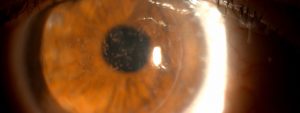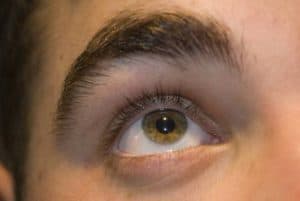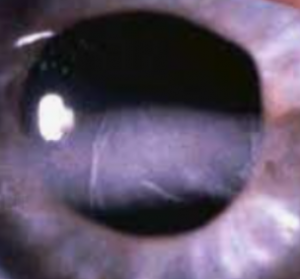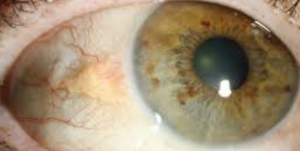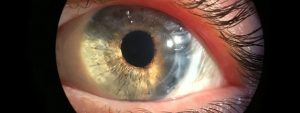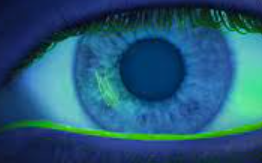Eye herpes affects over 1.5 million people around the world each year.
The most common type of eye herpes is called epithelial keratitis, which tends to infect the cornea, causing redness, inflammation, excessive tearing of the eye, and eventually affecting your visual clarity.
Left untreated, eye herpes can cause scarring and corneal ulcers, which may lead to permanent vision loss and even blindness.
What is eye herpes?
Eye herpes, also known as ocular herpes, is a potentially serious infection of the eye caused by the herpes simplex virus (HSV-1), the same virus that causes cold sores around the lips and mouth.
Eye herpes is typically contracted by touching a cold sore and then touching the eyes with contaminated fingers. Once contracted, the virus stays in the body for life.
Many people with eye herpes are unaware that they have it because it can lie dormant in the nervous system for years without causing any symptoms. It’s not unusual for HSV to reactivate months or even years after it was first contracted. Flare-ups can resolve after 2-3 weeks, though the infection can reappear, even after 10 years.
Oftentimes, eye herpes is confused with other types of pink eye, such as bacterial or other viral eye infections.
If you suffer with persistent red eyes, it is vital to contact an eye doctor near you who can diagnose and treat eye herpes with the appropriate medication.
SEE RELATED: Eyes and Herpes: Q&A
How does eye herpes affect the eyes?
Many parts of the eye can be affected by eye herpes, including:
- Cornea – the clear layer on the front of your eye
- Conjunctiva – the tissue that lines the inside of the eyelids and covers the sclera
- Sclera – the white part of your eye
- Eyelids – specifically the lid margins
- Retina – the light-sensing sheet of cells in the back of your eye
- Iris – the colored part of your eye
What are the symptoms of eye herpes?
Eye herpes is associated with various signs and symptoms, including:
- Blisters or rash on the eyelids
- Persistent sore, red or pink eyes
- Eye discomfort and irritation
- Headache and lethargy
- Reduced or blurred vision
- Sensitivity to light
- Excessive tearing
- Watery eye discharge
While eye herpes usually affects only one eye, it’s not uncommon for both eyes to be infected.
If you suspect you have eye herpes, contact an eye doctor near you who can help prevent further complications.
How to reduce the risk of eye herpes?
Although there is no way to totally prevent an eye herpes infection, or any other form of eye infection for that matter, the following measures will reduce your risk.
- Keep your eyes and hands clean
- Avoid touching your eyes if you have a herpes outbreak
- Seek medical treatment for any form of herpes as soon as possible
- If you wear contact lenses, be sure to follow your eye doctor’s instructions on contact lens care.
While there’s no ultimate cure for eye herpes, certain treatments can help control future outbreaks and prevent vision loss.
Early diagnosis and treatment of eye herpes can help avoid severe and life-long eye damage and significantly improve your symptoms.
Treatment usually includes antiviral medication, which can be eye drops, ointment, or oral medication.
LEARN MORE: Guide to Eye Conditions
If you’re experiencing symptoms of eye herpes, schedule an appointment with an eye doctor near you.



